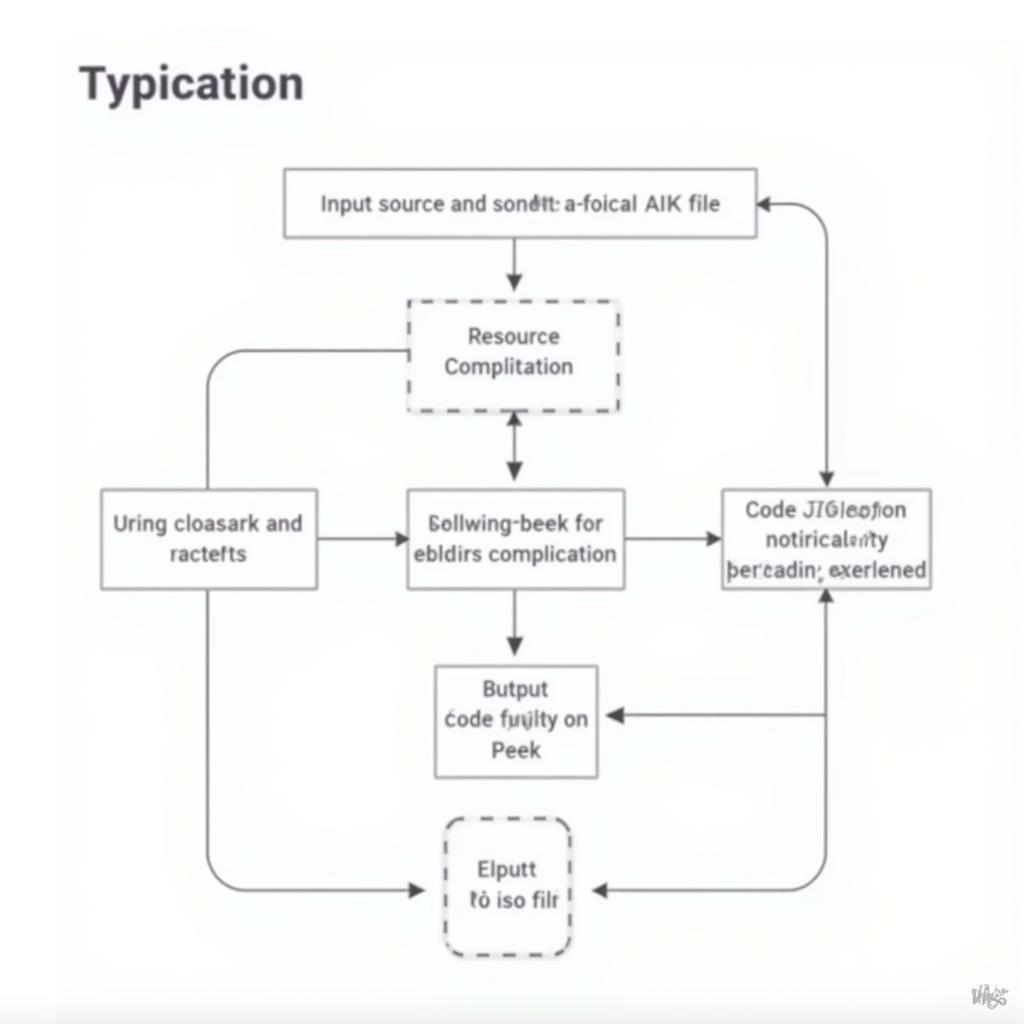An Apk Compiler is the essential tool for transforming your Android project’s code into a distributable and installable application package (APK). Understanding its intricacies is crucial for any Android developer. This guide delves into the core aspects of APK compilers, exploring their functionalities, benefits, and practical applications.
What is an APK Compiler and Why is it Important?
APK compilers play a vital role in the Android development ecosystem. They take your project’s source code, resources, and other assets, and package them into a single APK file. This file is what you then distribute to users for installation on their Android devices. Without an APK compiler, your app would remain a collection of disparate files, unusable on Android platforms.
The importance of a robust android apk decompiler apktool lies in its ability to streamline the deployment process, ensure compatibility across devices, and optimize the final APK for performance and size. Choosing the right compiler and understanding its settings can significantly impact the success of your Android application.
Key Features of a Reliable APK Compiler
Several features distinguish a powerful APK compiler. These include:
- Code Optimization: Compilers often incorporate optimization techniques to reduce the size of the final APK and improve its runtime performance. This includes removing dead code, minimizing resource usage, and optimizing bytecode.
- Resource Compilation: Compilers handle the compilation of various resources like images, layouts, and strings into a format optimized for Android devices.
- Signing and Alignment: Before an APK can be installed, it needs to be digitally signed with a developer certificate. APK compilers facilitate this process and also ensure proper alignment of the APK file for optimal loading on devices.
- Debugging Support: Many compilers offer features to help debug and troubleshoot issues during the development process. This can include generating debug symbols and facilitating integration with debugging tools.
- Multi-Platform Support: Some compilers offer support for compiling APKs for multiple architectures (e.g., ARM, x86), ensuring compatibility with a wider range of devices.
 APK Compiler Workflow Diagram
APK Compiler Workflow Diagram
Exploring Different Types of APK Compilers
There are several types of APK compilers available, each with its strengths and weaknesses.
Online APK Compilers
Online compilers offer a convenient way to quickly compile APKs without installing any software locally. However, they might have limitations in terms of customization and features.
Offline APK Compilers
Offline compilers, often integrated into Integrated Development Environments (IDEs) like Android Studio, provide more control over the compilation process and offer advanced features like debugging and profiling.
Command-Line APK Compilers
These compilers offer the greatest flexibility and are often preferred by experienced developers who want fine-grained control over the compilation process.
 Android Studio APK Compilation Interface
Android Studio APK Compilation Interface
How to Choose the Right APK Compiler?
Choosing the right APK compiler depends on several factors, including your project’s complexity, your development experience, and your specific needs.
- Project Size and Complexity: For small projects, online compilers might suffice. However, larger projects with complex dependencies often benefit from the features offered by offline compilers.
- Development Experience: Beginners might find IDE-integrated compilers easier to use, while experienced developers might prefer the flexibility of command-line compilers.
- Feature Requirements: Consider features like code optimization, debugging support, and multi-platform compatibility when choosing a compiler.
You can also explore community-driven options such as apk decompiler github.
Best Practices for Using an APK Compiler
Following best practices can help ensure a smooth and efficient compilation process.
- Keep Your Project Organized: A well-organized project structure makes it easier for the compiler to find and process the necessary files.
- Optimize Your Code and Resources: Optimizing your code and resources before compilation can reduce the size of the final APK and improve its performance. Consider checking android apk anti decompiler for security purposes.
- Test Thoroughly: After compiling your APK, thoroughly test it on various devices and Android versions to ensure compatibility and functionality. Looking into platforms like best apk decompiler reddit can be beneficial for troubleshooting and getting community insights.
Conclusion
The APK compiler is a fundamental tool in the Android development process. Understanding its capabilities and choosing the right one for your project is crucial for creating successful and efficient Android applications. By following best practices and leveraging the features offered by modern compilers, you can streamline your development workflow and deliver high-quality apps to your users. Remember to explore options like apk decompiler jadx for further understanding.
FAQ
- What is the difference between an APK compiler and a decompiler?
- How can I optimize my APK size?
- What are the different signing options for APKs?
- How do I choose the right architecture for my APK?
- What are some common errors during APK compilation?
- Can I compile an APK without an IDE?
- How do I distribute my compiled APK to users?
For support, contact us at Phone Number: 0977693168, Email: [email protected] Or visit us at: 219 Đồng Đăng, Việt Hưng, Hạ Long, Quảng Ninh 200000, Việt Nam. We have a 24/7 customer support team.